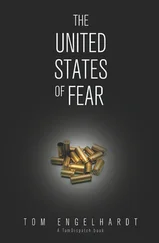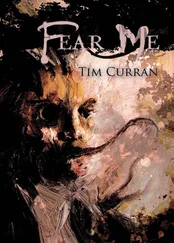And yet, when the performance was finished for the evening, all went home in different directions, and one was left alone, alone. Descending abruptly from the peak of performance, one returned to one’s rooms, or to a tavern, to hear the chimes at midnight, or at three in the morning. It had been an extraordinary day, yet it was ending in a way that had become painfully familiar. Along the quiet street, through the gate which Mrs. Callahan locked at eight o’clock each night, down the quiet hallway, and into my parlor, where I shut my apartment door behind myself and lit the lamps. I was still a young man, I told myself. I sat on my divan and read for a while. And after a while I set the book down and went to bed. It was far better than carrying sacks of grain across a muddy field, as I had remarked many times. Yet it occurred to me to wonder, as I turned down the lamp on my nightstand, where Henry Sims was, and how he made his peace with the night.
It was springtime in Philadelphia, and my gloomy mood did not last. I got up early the next morning and walked through the bright, still-damp city, through the sidewalk tree shade along Sixth Street on my way to the theater. I thought I might show up early, take care of a few business matters. Three creditors were becoming insistent, and we had sufficient funds to satisfy only two of them. Birch and a crew were supposed to be building a small replica of a cabin, on rollers, as an enhancement to our Uncle Tom segment, and I needed to see how that was coming along, as well.
The theater was alive with hammering and shouts, all of which emanated from Birch and two assistants. I made my way to the stage and regarded what they had done, which was perfectly serviceable.
“We’ll put a porch on it tomorrow,” Birch said, wiping his face with a rag.
“Why does it need a porch?” I said.
“For Burke? Didn’t you want him sitting out front?”
“I suppose,” I said. “But won’t that make it more difficult to maneuver on and off the stage?”
“We’ll make it so that it’s detachable.”
I nodded, looked inside. “Put a chair or two in there, and maybe something on the walls,” I said.
After they’d finished and Birch had left for the morning, I took lunch at Kolb’s, directly across from the theater. I liked the heavy, stained-wood paneling in the place, the lingering smell of beer and sauerkraut. I had my own napkin, and my own stein, and the house cat, Abel, knew he could count on a scrap or two from my plate. I lingered a while over one of my notebooks to finish scratching out a few notes toward a routine I was developing. Afterward, on the sidewalk, I stopped to let my eyes adjust to the day’s brightness. I looked across Arch Street at the façade of our theater — the stone steps, the two-story columns, the frieze above, with its lyre and laurel. A mockingbird had perched atop the bust of Shakespeare and sang in full voice. I’ve always loved those birds — the inexhaustible variation in their songs, the way they find the highest perch, the beautiful arrogance, the absolute freedom. I stood listening for a full minute, then I stepped off the curb, and as I did so I heard someone say my name. I turned, and there, in a doorway, stood Henry Sims. His banjo, in its bag, leaned against the door frame.
I was so surprised to see him that it took me a moment to locate words. “You’re here,” I said, finally and brilliantly.
“Can I see the theater?” he said. He wore spectacles now, and a brown plaid shirt and a pair of very fine hunting boots, which were utterly unfit both for the city and for the warm weather.
“Well,” I said, “of course.” We continued to stand regarding one another for a moment or two, and then he picked up the banjo in its bag and we started across the street. He was younger than I’d first taken him to be. We were, I realized, not far from the same age; perhaps he was two years my junior. As we crossed, his gaze scanned the street up and down.
“I’m glad you came,” I said. “Have you been out performing?”
“No,” he said. “I don’t do it every day.”
“Here,” I said, “this way.”
We entered the shaded alley that ran alongside the theater and continued down the cement walkway. I tried to arrange my thoughts as quickly as I could; this was the opportunity I had wanted, but it had arrived before I quite knew how I wished to handle it. We got to the stage door, which had been propped open. It was chilly inside, and we paused to let our eyes adjust to the relative darkness. There were always a few oil lamps set on a table by the door, and I located one and lit it, and we started walking through the curtained gloom of the backstage area.
“Watch for the ropes,” I said. Our backstage was full of traps for the unwary or the uninitiated — coils of rope, stacked wood placed anywhere for convenience, wardrobe racks, parts of moving sets retracted into the wings and beyond. Henry stuck close to my right elbow as we made our way.
“Here we are,” I said, opening the door into the dressing room, which was also still dark. I crossed to the dressing table and lit both lamps, and the room came into being.
“You can set the banjo down over there,” I told him.
He looked around the room, and as he did, I followed his gaze to the large mirror which hung lengthwise on the wall facing the dressing table, with a diagonal crack and pictures affixed to it, a cloth flower pinned on one edge. The necessary materials arrayed on the table: jars, wigs, pencils. Leaning in the corner of the room was Jenny, our mascot, a carved and painted wooden figure of a woman — some lost boat’s figurehead — gazing at the ceiling. Powell had done time as a seaman, and he brought her in for good luck. We were going to hang her over the dressing room door but we hadn’t got around to it. Someone had placed a straw hat on her head. A steamer trunk in the other corner, a low divan, and a large closet, the doors open, hooks on the doors hung with braces, vests, shoes arrayed along the bottom. Scattered around, and piled behind the divan, were props abandoned by visiting acts — three Indian clubs left by a pair of Chinese jugglers, a birdcage with a shoe in it, several coils of rope to be used with a trapeze assembly, a string of paper-cutout silhouettes.
“It’s quite a circus, isn’t it?” I said.
“When I got to Philadelphia I thought the theaters only had Shakespeare plays. Maybe operas.”
I was surprised to hear Shakespeare’s name from a Negro’s mouth. I wondered where he had picked that up. “How long have you been here?” I asked.
“A while,” he said.
He examined some of the jars and bottles, and he picked up one of the salvers of burnt cork mixture. He rubbed a bit of the sooty mess between his fingers and thumb, took some and smeared it across the back of his left hand. He stared at it.
“It’s mixed with a bit of grease so that it won’t sweat off easily,” I said.
“I had an idea about how you could present me.”
“Did you?” I said, slightly taken aback. As I faced him, I realized that the frames of his spectacles were empty of glass. He saw me notice this, and a slight smile shifted his features. I started to say something, and then I decided to hold off. This, I thought, is a fellow who likes to raise questions. “Let me show you the stage, and then we can talk about it.”
A sharp, narrow vein of light divided the heavy maroon draperies, which stretched far up into the darkness overhead. I pulled the curtain to one side and we stepped out onto the wooden boards of the stage, lit only by two lamps mounted on the side walls. Birch had left them on when he had retired for the day. I pointed to a row of metal shells with gas spigots inside, set along the stage’s edge. “Later, all those will be lit, and you see the reflectors that illuminate us.” Beyond the edge, the hall, still dark, yawned like the mouth of Jonah’s whale.
Читать дальше










